Description
BECE 2015 Mathematics Questions and Answers
The Basic Education Certificate Examination, which is more generally referred to as the BECE, is a very significant milestone for students in West Africa. It is a test that is taken by students in West Africa. This is due to the fact that the BECE is the factor that determines whether or not pupils will continue their education into secondary school. One of the most important subjects that builds the groundwork for logical reasoning and problem-solving abilities is mathematics. Both of these skills are essential for gaining admission to additional education as well as a variety of professional pathways.
The Basic Educational Competency Examination, more commonly referred to as the BECE, includes this discipline as one of the disciplines that are evaluated. When getting ready for the BECE mathematics test, it is common practice to go back and look at previous questions and answers already answered. Take, for instance, the opportunity to go over the questions and answers from the BECE exam that was administered in the year 2015. The following is a guide that will assist you in appreciating the significance of these resources and finding out how to make the most of the questions and answers that are related with the BECE Mathematics test that was administered in 2015. If you want to be successful in your studies, you should read this guide.
Importance of Studying BECE 2015 Mathematics Questions
Studying past BECE questions, particularly those from the 2015 Mathematics paper, can provide a wealth of insights into the types of questions asked, the format of the exam, and the areas of Mathematics that are frequently tested. The 2015 Mathematics paper covers a broad range of topics, including algebra, geometry, trigonometry, and basic arithmetic, all of which are essential for building foundational skills in the subject. Reviewing these questions can help you familiarize yourself with common question formats, the marking scheme, and the level of difficulty you can expect on the actual exam.

Overview of BECE 2015 Mathematics Topics
The BECE Mathematics paper is designed to test both knowledge and application of key mathematical concepts. Here’s a breakdown of the main topics covered in the 2015 Mathematics paper:
- Number Operations and Algebra
This section focuses on basic operations, factorization, solving linear equations, and understanding algebraic expressions. Knowing how to manipulate numbers and variables is crucial in tackling algebraic questions in BECE. - Geometry and Measurement
Geometry questions involve understanding shapes, sizes, and the properties of angles. Measurement questions require a firm grasp of calculating area, volume, and perimeter, essential skills tested regularly in the exam. - Trigonometry
The trigonometry portion includes questions on sine, cosine, tangent, and understanding right-angled triangles. Trigonometry can sometimes pose a challenge, but practicing 2015 BECE questions provides a pathway to mastering these concepts. - Statistics and Probability
This section involves calculating mean, median, mode, and probability. Students are expected to interpret and analyze data correctly, making these concepts key for understanding statistical questions on the BECE. - Word Problems and Applications
Word problems test students’ ability to apply mathematical concepts in real-life scenarios. This is where critical thinking and problem-solving come into play, as students are required to translate written information into mathematical equations and solve them accordingly.
How to Effectively Use BECE 2015 Mathematics Questions and Answers
To get the most out of reviewing the BECE 2015 Mathematics questions and answers, you must approach the task strategically. To begin, familiarize yourself with the various sorts of questions and how they are presented in the 2015 article. First, work through the questions on your own, and then review the answer guide to gain a better grasp of the correct solution and reasoning. This procedure, especially if you take the time to learn from your mistakes and keep track of them, will help you strengthen your comprehension of the fundamentals.
Additionally, conducting practice sessions in timed scenarios can be beneficial. A timer should be used to imitate the actual exam situation. This will improve your ability to manage your time effectively as well as your sense of pacing, both of which are essential skills for successfully completing the examination within the time limit.

Tips for Excelling in BECE Mathematics
The BECE Mathematics exam requires not just knowledge of math concepts but also the ability to apply these concepts effectively. Here are a few tips to ensure you perform your best:
- Understand Core Concepts Thoroughly
Building a strong foundation in the core topics such as algebra, geometry, and trigonometry is essential for solving complex problems accurately. Ensure you have a solid understanding of each concept before attempting past papers. - Practice Consistently
Regular practice with past papers, including the 2015 BECE Mathematics questions, is one of the most effective ways to prepare. Consistency will improve your speed and accuracy over time. - Analyse Mistakes
Go over the questions you answer incorrectly and understand where you went wrong. This practice helps reduce errors and strengthens your weak areas, ultimately boosting your confidence. - Simulate Exam Conditions
Taking mock exams under timed conditions will improve your ability to work under pressure and help you manage your time effectively in the actual exam.
Why BECE 2015 Mathematics Questions Are Still Relevant
Although the BECE 2015 exam was given quite a few years ago, the questions that were on it continue to be relevant for students who are preparing for future BECE Mathematics examinations. This is because the questions that were on the exam were based on mathematical concepts. Due to the fact that the principles of mathematics, in contrast to those of other courses, do not experience significant modifications over the course of time, the questions that are offered here continue to offer tremendous opportunities for practice. Students are able to acquire a grasp of the structure and pattern of the examination, which is relatively consistent, by examining the questions that have been asked since the previous examination. Students who are studying for the examination might benefit greatly from using these questions as a resource because they are informative and useful.

Conclusion
The BECE Mathematics exam preparation process doesn’t have to be a hard one. You can improve your problem-solving skills, gain a thorough understanding of the key concepts, and familiarize yourself with the format of the test by using resources like the BECE 2015 Mathematics questions and answers. By using a thorough preparation strategy that incorporates consistent practice, error analysis, and effective time management, one can gain the confidence necessary to face the BECE Mathematics exam with ease. If one puts in consistent effort and uses relevant materials, they can succeed on the BECE Mathematics exam.
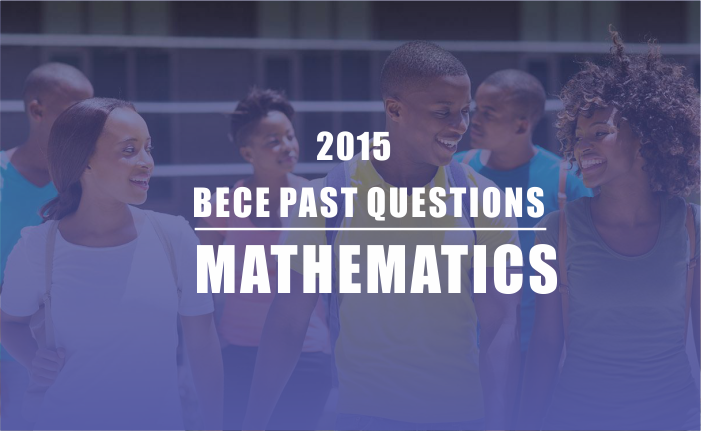
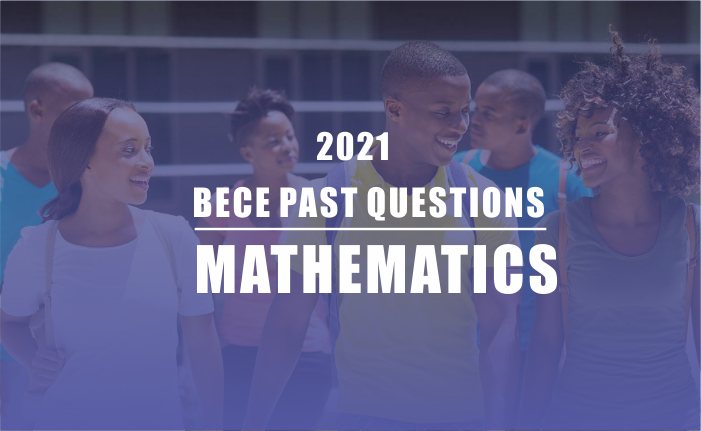
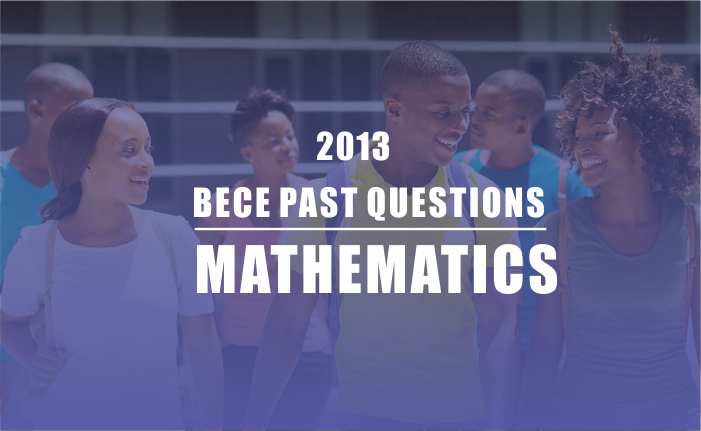
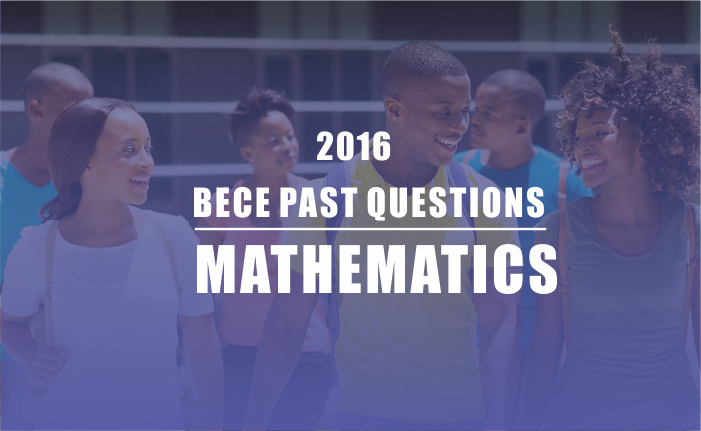
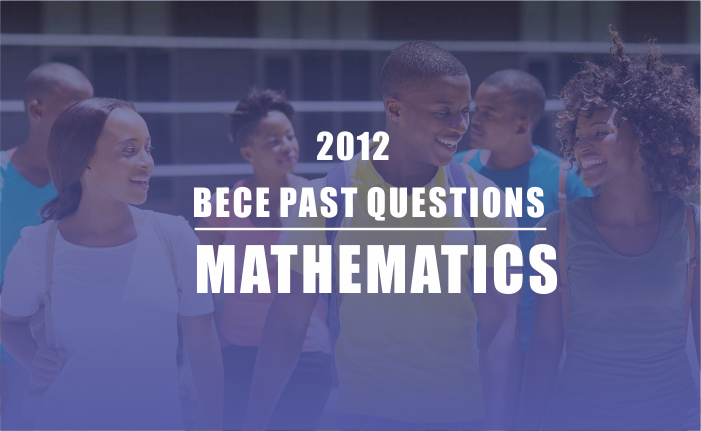
Reviews
There are no reviews yet.